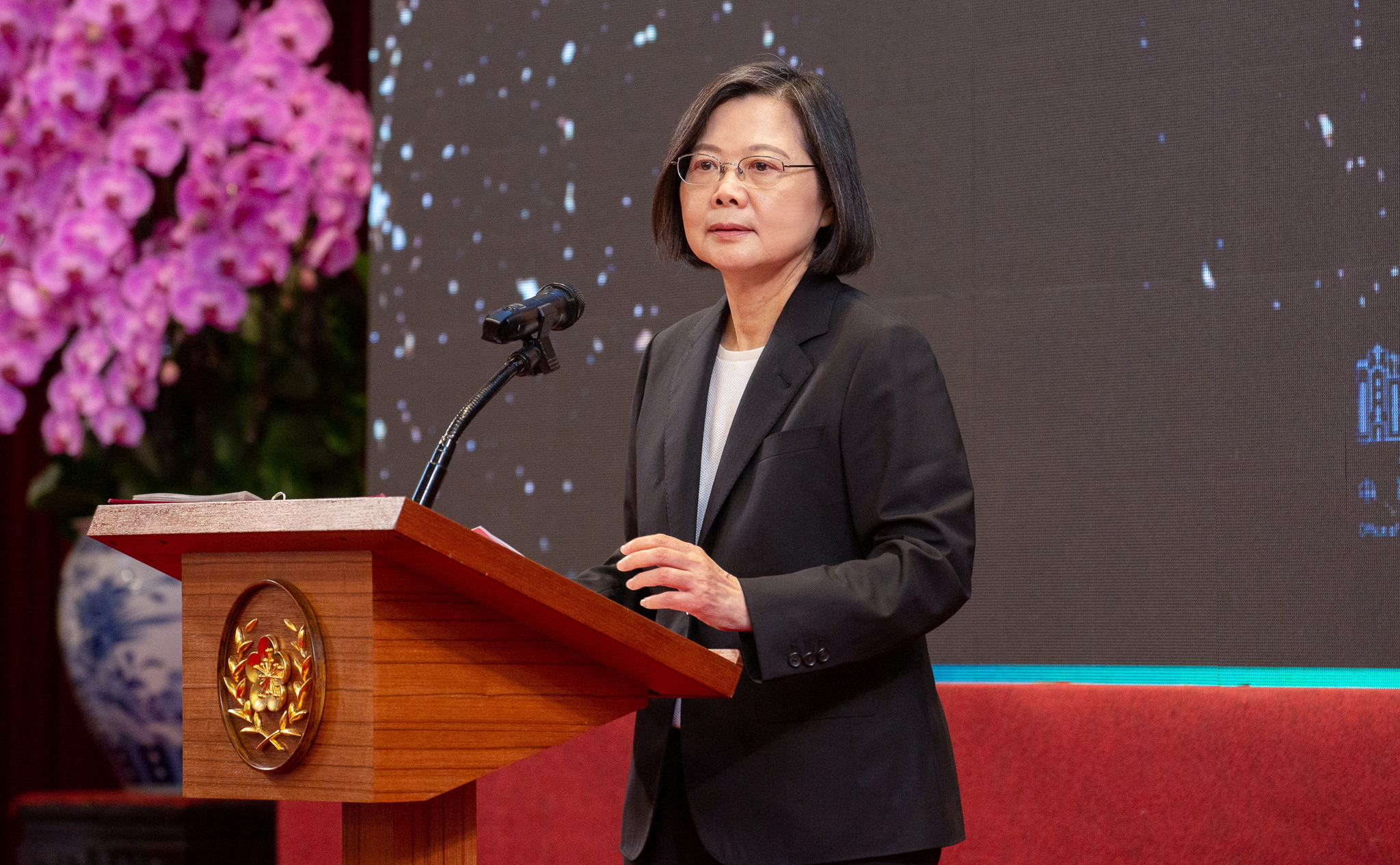
[1/4] Taiwan President Tsai Ing-wen delivers a speech on the day of the seventh anniversary of her assumption of office in Taipei, Taiwan on May 20, 2023. Presidential Office of Taiwan/Post via REUTERS
TAIPEI (Reuters) – Taiwanese President Tsai Ing-wen vowed on Saturday to maintain the status quo of peace and stability across the Taiwan Strait, amid high tensions with China, which has stepped up military pressure on the democratically-ruled island.
In a speech delivered at the presidential office in Taipei on the occasion of the seventh anniversary of her accession to power, Tsai said that Taiwan will not be provoked and will not succumb to Chinese pressure.
China, which considers Taiwan its own and threatens to bring the island under its control if necessary, has stepped up its military and diplomatic pressure to force the island to accept Chinese sovereignty since Tsai took power in 2016.
Beijing rejected invitations for talks from Tsai, viewing them as separatist. Tsai has repeatedly vowed to defend Taiwan’s freedom and democracy.
“War is not an option. Neither side can unilaterally change the status quo by non-peaceful means,” Tsai said. “Maintaining the status quo of peace and stability is the consensus of both the world and Taiwan.”
“Although Taiwan is surrounded by risks, it is by no means a risk maker. We are a responsible risk manager and Taiwan will stand with democratic countries and societies around the world to jointly defuse risks,” she said.
Japanese Prime Minister Fumio Kishida said on Friday that leaders of the Group of Seven rich nations agreed that they seek a peaceful solution to issues related to Taiwan.
Taiwanese officials are in discussions with US President Joe Biden’s administration about sending $500 million in weapons aid to Taiwan, Tsai said, adding that the aid was meant to process arms shipments that have been delayed due to the COVID-19 pandemic.
She stressed the global importance of Taiwan’s supply chain, which produces most of the world’s advanced semiconductor chips, and pledged to maintain state-of-the-art chip technology and R&D centers in Taiwan.
Taiwan is preparing for a crucial presidential election in mid-January, with China tensions high on the campaign agenda.
New Taipei City Mayor Hou Yu-ae, who represents Taiwan’s main opposition Kuomintang party in a key election in mid-January, said Taiwan faces a choice between “peace and war” under Tsai’s rule, and vowed to maintain regional stability. Through an unspecified “dialogue and exchange”.
Vowing to defend the Republic of China, Taiwan’s official name, Hu said at an event in Taipei to launch his election campaign that “fears of war will never eliminate hope for peace.”
He himself is running against Taiwan’s Vice President William Lai of the ruling Democratic Progressive Party.
The Kuomintang, which favors close ties with China, has framed the 2024 vote as a choice between war and peace.
In the presidential office, in response to a question about the opposition’s stance on the election, Tsai said that maintaining peace should be the consensus of all political parties in Taiwan, and that war fears should not be “sold for electoral gain.”
Reporting by Yimou Lee; Editing by Jacqueline Wong
Our standards: Thomson Reuters Trust Principles.

“Lifelong food lover. Avid beeraholic. Zombie fanatic. Passionate travel practitioner.”
